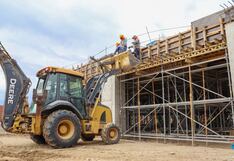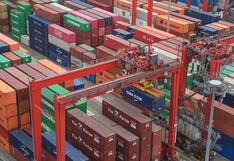China, commodity prices fall, policy normalization in the U.S., financial vulnerability and European and geopolitical risks. Martin Wolf knows very well the concerns about global economy. He considers himself skeptic as a journalist, but his points of view are somewhat optimistics.
What do you expect from the annual meeting IMF/WB? From my sense, most of the time the annual meetings don't have a huge effect. They are an opportunity to get together and talk, share ideas and perceptions but they don't change the world.
Will this happen in Lima? In a crisis, meetings are very important, like in October, 2008. But right know there is not much room to discuss a major reform in financial institutions.
What will be the discussions focus on?There will probably be discussions about the implications of China's establishing Asian Infrastructure investment bank. I don't know how intense that will be. My impression is that the discussions will be largely about the problems of the world's economy.
And the climate change? This can be one of the things in which changes might occur. For the first time, there is a more widely share sense among goverments that this is an important issue
Do you see international aid as possible? It is going to be discussions of exactly that, but I don't know how much it will be at the expense of other aid. It will be very difficult to get aid increases in any country. So, a lot of it will be relabeling existing aid.
Do you think having the event in Peru is a recognition for its performance in past years? The judgment sounds possible to me. However, some economies have been performing quite disappointingly. Brasil is the most important example. And there are big challenges ahead.
Will we face a more difficult scenario after an interest rate increase from the FED? I would suspect that the likely monetary policy tightening of the FED, which I think would be very small and very slow, is largely already in the markets.
So you do not see any shocks… There may be some shocks, there always are. But there might be no surprise, although I say this with great nervousness. My view would tend to be it is in the markets. Therefore, when the tighten happens, it might be nothing.
What about the capital flows leaving emerging countries? That is not clear. I still tend to feel that there will be shocks, but in the medium to long run it makes more sense to put capital in developing and emerging countries than in the advanced countries, because we don't have much opportunity, we are growing very slowly and we won't grow faster. So, it seems to me to make sense for capital flows to continue in emerging countries.
Is this the main concern for developing economies? For small open economies, capital flows is a big issue and managing that is very difficult.
What are the challenges in this situation? It is likely that the commodity prices adjustment is structural, not cyclical. They have to adjust their policy making to this shift. They can't treat it as cyclical so they can't just use the foreing currency reserve to sustain spending. That would be a mistake.
Does this apply to Peru? Yes. It will have to adjust fiscal policy and shift resources to other sectors. These processes are always difficult, but I am reasonably confident that emerging countries, like Peru, are in vastly in better shape than what they were 35 years ago, so they should be able to navigate much more successfully in this context.
ResumeNationality: British.Studies: Philosophy, Politics & Economics in Corpus Christi College at Oxford University.Career: Economist at WB and served on the Independent Commission on Banking.





